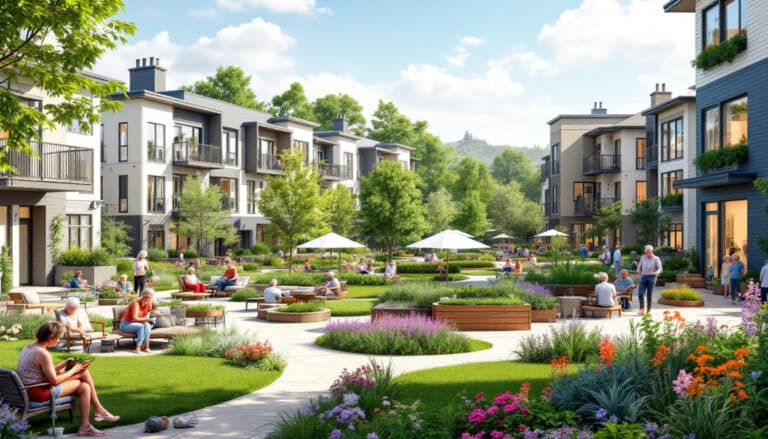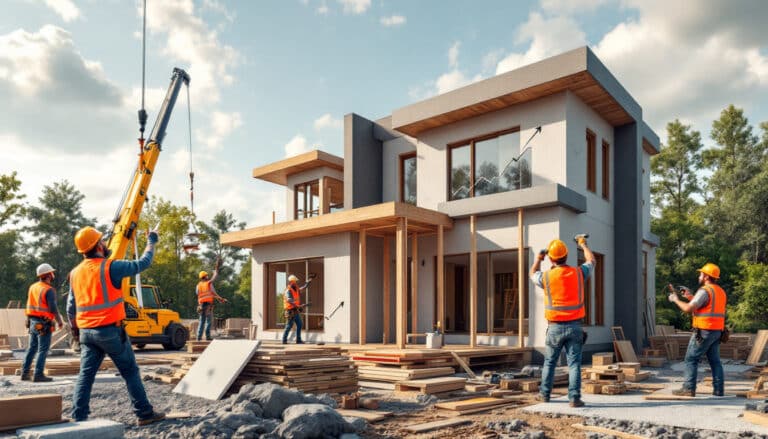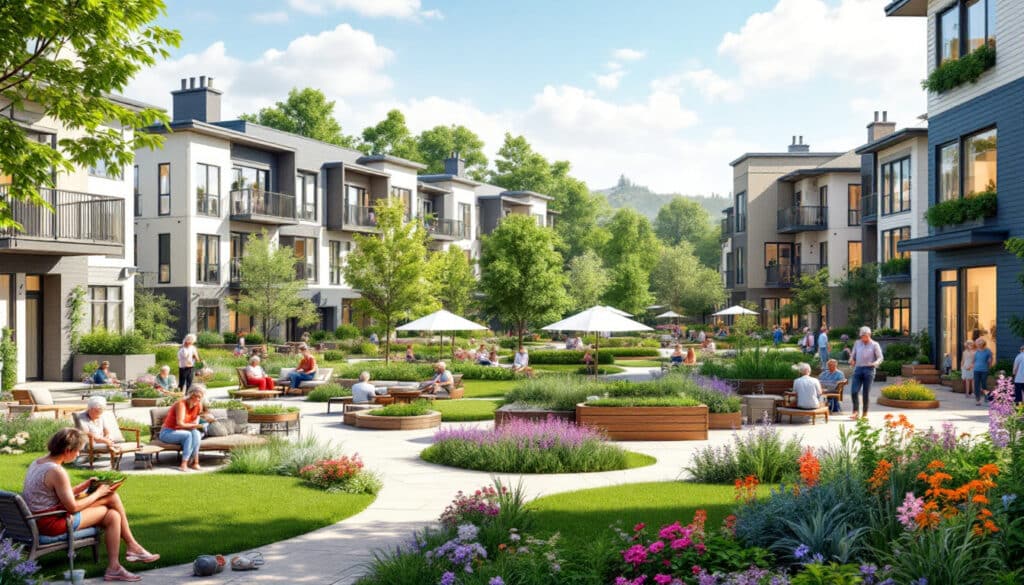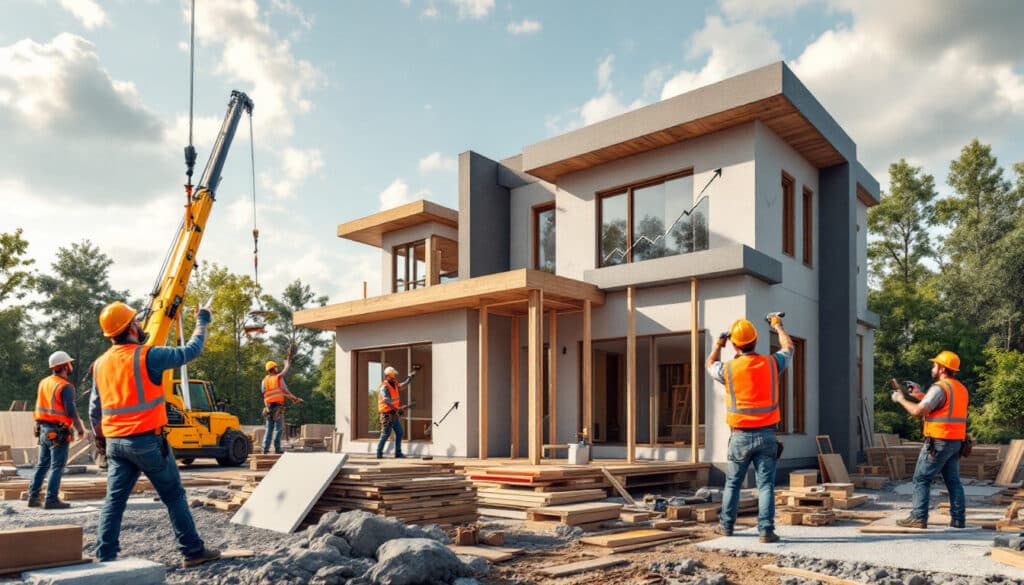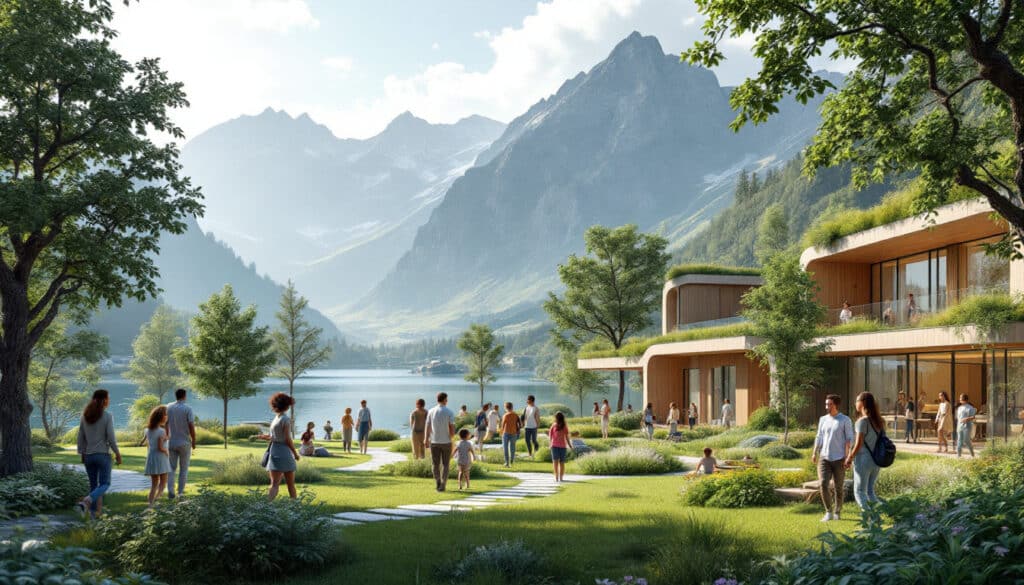Cookies and data play an essential role in the efficient management of online services. They allow for the maintenance and provision of quality services while ensuring an optimal user experience. Thanks to them, it is possible to protect against abuse and continuously improve the offered services.
By accepting all options, you authorize the development of new services and the effectiveness of advertisements. Personalized content is tailored according to your preferences and previous activity. However, if you choose to refuse, only the basic functionalities will remain active. Detailed information on managing your privacy is available to help you make informed decisions.

Table of Contents
ToggleWhat is sustainable urban planning?
Sustainable urban planning is an approach that aims to design urban spaces that are environmentally friendly, socially equitable, and economically viable. At the Town Hall, this concept is at the heart of construction projects, aiming to meet current needs without compromising those of future generations. The main goal is to create environments that promote the well-being of residents while minimizing ecological footprints. This includes the use of eco-friendly materials, the promotion of green transportation, and the creation of green spaces accessible to all.
What are the benefits of sustainable urban planning for the community?
Sustainable urban planning offers numerous benefits for the community. It improves quality of life by creating greener spaces, reducing pollution, and promoting better public health. Additionally, it supports the local economy by encouraging the use of local materials and creating jobs in the green construction sectors. At the Town Hall, these benefits translate into projects that meet the needs of citizens while respecting the environment. For example, support for youth initiatives to eradicate inadequate and unhealthy housing contributes to a more just and inclusive society.
How does the Town Hall integrate innovation into its projects?
The Town Hall integrates innovation into its sustainable urban planning projects by adopting cutting-edge technologies and innovative construction methods. One remarkable initiative is the fusion of geodesic domes and architecture, presented by Antoine Linclan, allowing for the creation of more resilient and eco-friendly structures. Furthermore, drawing inspiration from Bjarke Ingels’ visions of eco-responsible urban planning, the Town Hall develops projects that combine aesthetics and functionality while respecting sustainable development principles.
What regulations support sustainable urban planning in Bordeaux?
In Bordeaux, new regulations regarding access to second-line constructions could promote sustainable urban development. This regulation aims to optimize the use of available spaces while respecting environmental standards. By facilitating access to second-line constructions, the Town Hall encourages smart densification and reduces urban sprawl. This helps preserve natural spaces and create more coherent and integrated neighborhoods, thereby contributing to more sustainable and harmonious urban planning.
What initiatives does the Town Hall support to eradicate inadequate housing?
The Town Hall actively supports initiatives aimed at eradicating inadequate and unhealthy housing. By collaborating with innovative youth and funding urban renovation projects, it helps transform struggling neighborhoods into dignified and sustainable living spaces. For example, the support program for youth initiatives encourages citizen participation and social innovation, ensuring that the solutions implemented truly address the needs of residents. These actions strengthen the social fabric and foster better integration of vulnerable populations.
How to measure the impact of sustainable urban planning?
Measuring the impact of sustainable urban planning requires precise indicators and ongoing evaluation of projects. The Town Hall uses tracking tools to assess the effectiveness of initiatives in terms of reducing carbon footprints, improving quality of life, and boosting local economic dynamism. Case studies in urban planning facilitate understanding of challenges and solutions adopted, providing a solid foundation for adjusting and optimizing future projects. This data-driven approach ensures that each initiative contributes positively to the sustainable development of the community.
What are the future perspectives of sustainable urban planning?
The future perspectives of sustainable urban planning are promising, with a growing trend to integrate sustainability principles into all aspects of urban planning. The Town Hall plans to further develop eco-responsible projects, focusing on innovation and citizen participation. Adopting new technologies, such as smart buildings and green infrastructures, will create cities that are more resilient and adaptable to future challenges. Furthermore, collaboration with experts and local stakeholders will ensure a holistic and inclusive approach, ensuring that sustainable urban planning continues to serve the public interest.
What resources are available to deepen knowledge about sustainable urban planning?
For those who wish to learn more about sustainable urban planning, numerous resources are available. The website Case studies in urban planning offers an in-depth understanding of the issues and solutions applied in various urban contexts. Additionally, articles like Bjarke Ingels and the future of eco-responsible urban planning provide innovative perspectives on current trends. For those interested in concrete initiatives, support for youth initiatives is a valuable resource. These tools allow for the enhancement of knowledge and inspiration from best practices in sustainable urban planning.
How does the Town Hall collaborate with local stakeholders?
Collaboration with local stakeholders is essential for the success of sustainable urban planning projects. The Town Hall works closely with municipal authorities, community organizations, and local businesses to ensure a coherent and inclusive approach. For example, in partnership with innovative architects like Antoine Linclan, the Town Hall develops architectural solutions that meet the specific needs of the community while adhering to sustainability principles. This synergy allows for the creation of projects that are tailored, accepted, and supported by residents, thus ensuring their long-term success.
What challenges does sustainable urban planning face?
Sustainable urban planning faces several challenges, including managing limited resources, resistance to change, and funding projects. The Town Hall addresses these challenges by adopting innovative strategies and involving citizens in the planning process. Optimizing resources, for example, involves using recycled materials and promoting energy efficiency. Additionally, by raising public awareness about the benefits of sustainable development, the Town Hall encourages broader acceptance of initiatives. Lastly, by diversifying funding sources, it ensures the economic viability of projects while respecting ecological and social goals.
What are the concrete examples of sustainable urban planning at the Town Hall?
Several projects at the Town Hall perfectly illustrate the application of sustainable urban planning. Among them, the fusion of geodesic domes and architecture by Antoine Linclan is a bold innovation that combines resilience and ecology. Likewise, initiatives aimed at eradicating inadequate housing through support for innovative youth demonstrate a concrete commitment to a more just society. Other projects, such as new regulations in Bordeaux, show a willingness to integrate sustainability principles into urban planning. These examples illustrate how the Town Hall implements sustainable and innovative solutions to enhance urban life.


